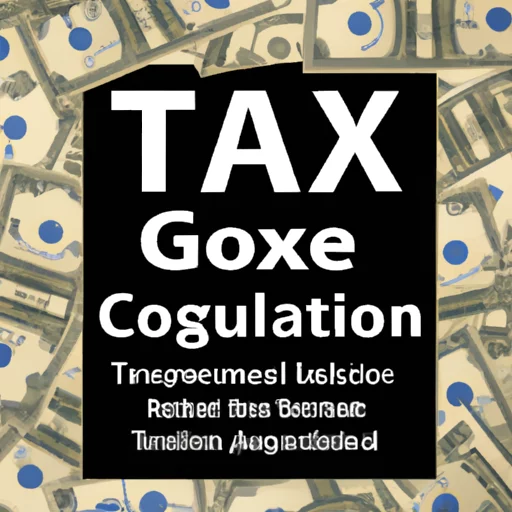 The Mobile Billing Casino & SMS Casino Deposit with Casino Pay By Boku, Mr Spin Review posts with CasinoPhoneBill.com
The Mobile Billing Casino & SMS Casino Deposit with Casino Pay By Boku, Mr Spin Review posts with CasinoPhoneBill.com
Gambling Taxation
-
Casino Phone Bill Slots | Mobile Casino, Bets and Gambling Views
- Introduction
- Exploring the Different Tax Rates for Gambling Winnings in the U.S
- How to Calculate Gambling Tax Liability in the U.K
- Examining the Impact of Gambling Taxation on State Revenues
- The Pros and Cons of Taxing Gambling Winnings
- How to File Taxes on Gambling Winnings in Canada
- Understanding the Different Tax Treatments for Professional and Amateur Gamblers
- Analyzing the Impact of Gambling Taxation on the Gaming Industry
- Exploring the Different Tax Treatments for Online and Land-Based Gambling Winnings
- Examining the Different Tax Rates for Gambling Winnings Across Europe
- How to Minimize Your Gambling Tax Liability in the U.S
- Understanding the Different Tax Treatments for Lottery Winnings in the U.S
- Exploring the Different Tax Treatments for Gambling Winnings in Australia
- Q&A
- Conclusion
“Gambling Taxation: Your Winning Bet for Financial Security!”
Introduction
Gambling taxation is a form of taxation imposed on gambling activities, such as lottery winnings, casino winnings, and sports betting. It is a way for governments to collect revenue from gambling activities and to discourage excessive gambling. Gambling taxation can be imposed at the federal, state, or local level, depending on the jurisdiction. Gambling taxes are typically progressive, meaning that the more money a person wins, the higher the tax rate they will pay. The taxation of gambling activities has been a contentious issue in many countries, with some arguing that it is an unfair burden on those who are already struggling financially. This article will provide an overview of gambling taxation and its implications.
Exploring the Different Tax Rates for Gambling Winnings in the U.S
Gambling winnings are subject to taxation in the United States, and the Internal Revenue Service (IRS) has established different tax rates for different types of gambling winnings. The type of gambling activity, the amount of winnings, and the taxpayer's filing status all affect the rate of taxation.
For most types of gambling, winnings are taxed at a flat rate of 25%. This includes winnings from lotteries, raffles, horse races, and casinos. However, if the winnings exceed $5,000, the taxpayer must fill out a Form W-2G to report the income. In addition, if the winnings are from a state-sponsored lottery or horse race, the taxpayer may be subject to additional state taxes.
Winnings from bingo and slot machines are also subject to a 25% tax rate. However, if the winnings exceed $1,200 from a slot machine or $1,500 from bingo, the taxpayer must fill out a Form W-2G to report the income.
Winnings from poker tournaments are subject to a different tax rate. If the winnings exceed $5,000 and the tournament is considered a “trade or business” by the IRS, then the taxpayer must pay taxes at their ordinary income tax rate. This rate can range from 10% to 37%, depending on the taxpayer's filing status and income level.
Finally, winnings from fantasy sports contests are subject to a flat rate of 6%. This rate applies regardless of how much money is won.
It is important for taxpayers to understand their tax obligations when it comes to gambling winnings. Failure to report gambling winnings can result in penalties and interest charges from the IRS.
How to Calculate Gambling Tax Liability in the U.K
In the United Kingdom, gambling winnings are subject to taxation. This means that any money won from gambling activities must be declared as income and is subject to income tax. The amount of tax owed depends on the type of gambling activity and the amount of winnings.
For betting and gaming activities, any winnings over £2,000 are subject to a 20% tax rate. This means that if you win more than £2,000 from betting or gaming activities, you must pay 20% of your winnings in tax. For example, if you win £3,000 from betting or gaming activities, you must pay £400 in tax.
For lotteries, any winnings over £500 are subject to a 20% tax rate. This means that if you win more than £500 from a lottery, you must pay 20% of your winnings in tax. For example, if you win £1,000 from a lottery, you must pay £200 in tax.
In addition to income tax, any gambling winnings over £1,500 are also subject to a 15% withholding tax. This means that the gambling operator will deduct 15% of your winnings before paying out the remaining amount. For example, if you win £2,000 from a gambling activity, the operator will deduct £300 before paying out the remaining £1,700.
It is important to note that these taxes are only applicable to gambling activities conducted in the United Kingdom. If you are gambling abroad or online, different rules may apply.
To calculate your total gambling tax liability in the United Kingdom, you must first determine the amount of your winnings and then calculate the applicable income tax and withholding tax rates. Once you have calculated these amounts, you can add them together to determine your total gambling tax liability.
Examining the Impact of Gambling Taxation on State Revenues
Gambling has become an increasingly popular form of entertainment in the United States, and with it, states have seen a rise in revenue from taxation. But how much of an impact does gambling taxation have on state revenues?
To answer this question, it is important to look at the different types of gambling taxes that states impose. Most states impose a tax on casino winnings, which is typically a percentage of the total amount won. Some states also impose taxes on lottery winnings, while others may levy taxes on sports betting or other forms of gambling.
In addition to these taxes, some states also impose a “sin tax” on gambling activities. This type of tax is designed to discourage people from engaging in certain activities, such as gambling. The amount of the sin tax varies from state to state, but it can be as high as 10 percent of the total amount wagered.
The impact of gambling taxation on state revenues can be significant. According to the American Gaming Association, in 2018, state and local governments collected more than $9 billion in taxes from commercial casinos alone. This figure does not include taxes collected from other forms of gambling, such as lotteries and sports betting.
The impact of gambling taxation on state revenues can also be seen in terms of job creation. According to the AGA, the commercial casino industry supports more than 1.8 million jobs across the United States. These jobs range from casino employees to vendors who provide services to casinos.
Overall, it is clear that gambling taxation has a significant impact on state revenues. Not only does it generate revenue for states, but it also creates jobs and encourages economic growth.
The Pros and Cons of Taxing Gambling Winnings
The taxation of gambling winnings has been a contentious issue for many years. On one hand, taxing gambling winnings can be seen as a way to generate additional revenue for the government. On the other hand, it can be seen as an unfair burden on those who are lucky enough to win big. Here are some of the pros and cons of taxing gambling winnings.
Pros
1. Generates Revenue: Taxing gambling winnings is a way for the government to generate additional revenue. This money can be used to fund public services and programs, such as education and healthcare.
2. Discourages Problem Gambling: Taxing gambling winnings can also be seen as a way to discourage problem gambling. By making it more expensive to gamble, it may discourage people from engaging in excessive or irresponsible gambling behavior.
Cons
1. Unfair Burden: Taxing gambling winnings can be seen as an unfair burden on those who are lucky enough to win big. It can also be seen as a form of double taxation, since gamblers have already paid taxes on their income before they gamble.
2. Discourages Recreational Gambling: Taxing gambling winnings can also discourage recreational gambling, which is often seen as a harmless form of entertainment. This could have a negative impact on the economy, since many businesses rely on recreational gamblers for their income.
Overall, the pros and cons of taxing gambling winnings must be carefully weighed before any decision is made. While it may generate additional revenue for the government, it could also have a negative impact on recreational gamblers and those who are lucky enough to win big.
How to File Taxes on Gambling Winnings in Canada
Gambling winnings in Canada are subject to taxation, and must be reported on your income tax return. Here is a step-by-step guide to filing taxes on gambling winnings in Canada:
1. Calculate your winnings: Before filing your taxes, you must first calculate the total amount of your gambling winnings for the year. This includes any prizes, cash, or other forms of payment you received from gambling activities.
2. Gather supporting documents: You should keep all documents related to your gambling activities, such as receipts, tickets, and bank statements. These documents will help you accurately report your winnings on your tax return.
3. Report your winnings: On your income tax return, you must report all of your gambling winnings as “other income” on line 21000 of Schedule 1.
4. Deduct losses: You can also deduct any losses you incurred from gambling activities in the same year. To do this, you must complete Form T2125 and attach it to your tax return.
5. File your taxes: Once you have completed all of the necessary forms and gathered all of the required documents, you can file your taxes with the Canada Revenue Agency (CRA). You can file online or by mail.
By following these steps, you can ensure that you are accurately reporting your gambling winnings and paying the correct amount of taxes on them.
Understanding the Different Tax Treatments for Professional and Amateur Gamblers
Gambling can be a lucrative activity, but it is important to understand the different tax treatments for professional and amateur gamblers. Professional gamblers are considered self-employed and must report their gambling income on a Schedule C form. This income is subject to both federal and state income taxes.
Amateur gamblers, on the other hand, are not considered self-employed and must report their gambling winnings on a Form 1040. Gambling winnings are considered taxable income and must be reported as such. However, losses can be deducted up to the amount of winnings reported. For example, if an amateur gambler reports $10,000 in winnings, they can deduct up to $10,000 in losses.
It is important to note that professional gamblers may also deduct losses up to the amount of winnings reported. However, professional gamblers must also pay self-employment taxes on their gambling income. This includes Social Security and Medicare taxes, which are not required for amateur gamblers.
In addition, professional gamblers may be able to deduct certain expenses related to their gambling activities. These expenses may include travel costs, lodging, meals, and other costs associated with gambling. Amateur gamblers cannot deduct these expenses from their taxes.
Finally, it is important to remember that gambling winnings are subject to withholding taxes. Professional gamblers may be able to avoid this by filing a Form W-2G with the IRS. Amateur gamblers may also be able to avoid withholding taxes by filing a Form W-2G with the IRS.
Understanding the different tax treatments for professional and amateur gamblers is essential for anyone who participates in gambling activities. Knowing how your winnings will be taxed can help you plan ahead and ensure that you are properly reporting your income and deductions on your tax return.
Analyzing the Impact of Gambling Taxation on the Gaming Industry
The gaming industry is a major contributor to the global economy, generating billions of dollars in revenue each year. As such, governments around the world have implemented taxes on gambling activities to generate additional revenue. But how does taxation affect the gaming industry?
To answer this question, it is important to understand the different types of taxes that are imposed on the gaming industry. The most common type of tax is a gross gaming revenue (GGR) tax, which is a percentage of the total amount of money wagered by players. This type of tax is typically applied to casinos, sports betting, and other forms of gambling. Other taxes that may be imposed on the gaming industry include value-added taxes (VAT), excise taxes, and corporate income taxes.
The impact of taxation on the gaming industry can be both positive and negative. On the one hand, taxation can provide additional revenue for governments, which can be used to fund public services and infrastructure projects. On the other hand, taxation can also lead to higher costs for operators, which can reduce their profits and make it more difficult for them to remain competitive in the market.
In addition, taxation can also have an impact on consumer behavior. Higher taxes can lead to higher prices for consumers, which can reduce demand for certain types of gambling activities. This can lead to a decrease in overall revenue for operators and a decrease in overall economic activity in the gaming industry.
Overall, taxation has a significant impact on the gaming industry. While it can provide additional revenue for governments, it can also lead to higher costs for operators and reduced demand from consumers. As such, governments should carefully consider the impact of taxation on the gaming industry before implementing any new taxes or increasing existing ones.
Exploring the Different Tax Treatments for Online and Land-Based Gambling Winnings
Online Gambling winnings are subject to different tax treatments than land-based gambling winnings. Depending on the country, the taxation of online gambling winnings can vary significantly.
In the United States, the Internal Revenue Service (IRS) considers online gambling winnings as taxable income. This means that any winnings from online gambling must be reported on your tax return and taxes must be paid on them. The amount of tax you owe will depend on your total income and filing status.
In the United Kingdom, online gambling winnings are not subject to taxation. This means that you do not have to pay any taxes on your winnings from online gambling. However, if you are a professional gambler, you may be required to pay taxes on your winnings.
In Canada, online gambling winnings are subject to taxation. The amount of tax you owe will depend on your total income and filing status. You may also be required to pay provincial or territorial taxes on your winnings.
Land-based gambling winnings are generally subject to taxation in most countries. In the United States, the IRS considers land-based gambling winnings as taxable income and taxes must be paid on them. In the United Kingdom, land-based gambling winnings are subject to taxation depending on the amount won and the type of game played. In Canada, land-based gambling winnings are subject to taxation depending on the province or territory in which you live.
Overall, it is important to understand the different tax treatments for online and land-based gambling winnings in order to ensure that you are paying the correct amount of taxes on your winnings. It is also important to consult with a qualified tax professional if you have any questions or concerns about how your winnings should be taxed.
Examining the Different Tax Rates for Gambling Winnings Across Europe
Gambling winnings are subject to taxation in many countries across Europe. The tax rates vary widely, depending on the country and the type of gambling activity. In some countries, gambling winnings are completely tax-free, while in others, they are subject to a flat rate or a progressive rate.
In the United Kingdom, gambling winnings are not subject to taxation. This applies to all forms of gambling, including lotteries, sports betting, and casino games. However, if a gambler is considered to be a professional gambler, they may be liable for income tax on their winnings.
In France, gambling winnings are subject to a flat rate of 15%. This applies to all forms of gambling, including lotteries, sports betting, and casino games. Professional gamblers may be liable for income tax on their winnings.
In Germany, gambling winnings are subject to a progressive rate of taxation. The rate depends on the amount won and ranges from 5% to 45%. Professional gamblers may be liable for income tax on their winnings.
In Italy, gambling winnings are subject to a flat rate of 20%. This applies to all forms of gambling, including lotteries, sports betting, and casino games. Professional gamblers may be liable for income tax on their winnings.
In Spain, gambling winnings are subject to a flat rate of 25%. This applies to all forms of gambling, including lotteries, sports betting, and casino games. Professional gamblers may be liable for income tax on their winnings.
In Sweden, gambling winnings are subject to a flat rate of 18%. This applies to all forms of gambling, including lotteries, sports betting, and casino games. Professional gamblers may be liable for income tax on their winnings.
As can be seen from the above information, the taxation of gambling winnings varies widely across Europe. It is important for gamblers to understand the rules in their own country before engaging in any form of gambling activity.
How to Minimize Your Gambling Tax Liability in the U.S
Gambling winnings are taxable income in the United States, and the Internal Revenue Service (IRS) requires taxpayers to report all gambling winnings on their tax returns. Fortunately, there are several strategies that taxpayers can use to minimize their gambling tax liability.
First, taxpayers should keep accurate records of their gambling activities. This includes keeping track of all winnings and losses, as well as the date, type of wager, and location of the activity. This information is necessary for accurately reporting gambling income on tax returns.
Second, taxpayers should take advantage of any deductions or credits available for gambling losses. The IRS allows taxpayers to deduct gambling losses up to the amount of their winnings. For example, if a taxpayer has $10,000 in winnings and $7,000 in losses, they can deduct the $7,000 in losses from their taxable income.
Third, taxpayers should consider setting up a separate bank account for gambling activities. This will make it easier to track winnings and losses and ensure that all funds used for gambling are accounted for.
Finally, taxpayers should consider consulting with a tax professional to ensure that they are taking advantage of all available deductions and credits. A tax professional can also provide advice on how to minimize taxes on gambling winnings.
By following these strategies, taxpayers can minimize their gambling tax liability and ensure that they are compliant with IRS regulations.
Understanding the Different Tax Treatments for Lottery Winnings in the U.S
Lottery winnings in the United States are subject to different tax treatments depending on the type of lottery and the amount won. Generally, lottery winnings are considered taxable income and must be reported on a federal income tax return.
For state lotteries, the Internal Revenue Service (IRS) requires that all winnings over $600 be reported as taxable income. The amount of taxes owed will depend on the taxpayer's income level and filing status. In addition, some states may impose additional taxes on lottery winnings.
For multi-state lotteries, such as Powerball and Mega Millions, the IRS requires that all winnings over $5,000 be reported as taxable income. The amount of taxes owed will depend on the taxpayer's income level and filing status. In addition, some states may impose additional taxes on lottery winnings.
Lottery winnings from foreign lotteries are also subject to taxation in the United States. The IRS requires that all winnings over $600 be reported as taxable income. The amount of taxes owed will depend on the taxpayer's income level and filing status. In addition, some states may impose additional taxes on foreign lottery winnings.
Finally, lottery winnings from private lotteries are also subject to taxation in the United States. The IRS requires that all winnings over $600 be reported as taxable income. The amount of taxes owed will depend on the taxpayer's income level and filing status. In addition, some states may impose additional taxes on private lottery winnings.
Overall, it is important to understand the different tax treatments for lottery winnings in the United States in order to ensure that all taxes are paid correctly and on time.
Exploring the Different Tax Treatments for Gambling Winnings in Australia
Gambling winnings in Australia are subject to different tax treatments depending on the type of gambling activity and the amount of winnings.
For example, winnings from lotteries, sweepstakes, and horse racing are generally not subject to taxation. However, winnings from other forms of gambling such as poker, casino games, and sports betting are taxable.
The amount of tax payable on gambling winnings depends on the amount won and the type of gambling activity. For example, if you win more than $1,000 from a poker tournament, you will be required to pay tax on the full amount. On the other hand, if you win less than $1,000 from a poker tournament, you will only be required to pay tax on the amount over $1,000.
In addition to this, some states in Australia have their own specific tax laws for gambling winnings. For example, in Victoria, all gambling winnings are subject to taxation regardless of the amount won or the type of gambling activity.
It is important to note that if you are a professional gambler, your winnings may be subject to different tax treatments. Professional gamblers may be required to pay income tax on their winnings as well as other taxes such as GST and stamp duty.
Overall, it is important to understand the different tax treatments for gambling winnings in Australia in order to ensure that you are paying the correct amount of tax. It is also important to seek professional advice if you are unsure about your obligations.
Q&A
1. What is gambling taxation?
Gambling taxation is the taxation of income derived from gambling activities, such as winnings from lotteries, casinos, sports betting, and other forms of gambling.
2. Who pays gambling taxes?
Gambling taxes are typically paid by the person who won the money, although in some cases the casino or other organization that facilitated the gambling activity may be responsible for paying the taxes.
3. How much tax do I have to pay on my gambling winnings?
The amount of tax you have to pay on your gambling winnings depends on the type of gambling activity and your total winnings for the year. Generally, you will be required to pay federal income tax on any winnings over $600. You may also be required to pay state taxes depending on where you live.
4. Do I have to report my gambling winnings?
Yes, you must report all of your gambling winnings on your tax return. You should also keep records of your winnings and losses in order to accurately report them on your return.
5. Are there any deductions I can take for my gambling losses?
Yes, you can deduct your gambling losses up to the amount of your winnings. However, you must itemize your deductions in order to take advantage of this deduction.
6. Are there any special rules for professional gamblers?
Yes, professional gamblers may be subject to different rules when it comes to reporting their income and claiming deductions for their losses. It is important to consult with a tax professional if you are a professional gambler in order to ensure that you are following all applicable laws and regulations.
7. Are there any tax benefits for gambling activities?
No, there are no special tax benefits for gambling activities. All income derived from gambling activities is subject to taxation at the applicable rate.
8. Are there any special rules for online gambling?
Yes, online gambling is subject to different rules than traditional forms of gambling. It is important to consult with a tax professional if you engage in online gambling in order to ensure that you are following all applicable laws and regulations.
9. Are there any special rules for international gamblers?
Yes, international gamblers may be subject to different rules when it comes to reporting their income and claiming deductions for their losses. It is important to consult with a tax professional if you are an international gambler in order to ensure that you are following all applicable laws and regulations.
10. Are there any special rules for charitable gaming activities?
Yes, charitable gaming activities may be subject to different rules when it comes to reporting their income and claiming deductions for their losses. It is important to consult with a tax professional if you are engaging in charitable gaming activities in order to ensure that you are following all applicable laws and regulations.
11. Are there any special rules for Native American gaming activities?
Yes, Native American gaming activities may be subject to different rules when it comes to reporting their income and claiming deductions for their losses. It is important to consult with a tax professional if you are engaging in Native American gaming activities in order to ensure that you are following all applicable laws and regulations.
12. Is there any way I can reduce my taxes on my gambling winnings?
Yes, there are several strategies that can help reduce your taxes on your gambling winnings, such as taking advantage of deductions or credits available under the law or investing your winnings in certain types of investments that may provide tax benefits. It is important to consult with a tax professional in order to determine which strategies may be best for your particular situation.
Conclusion
Gambling taxation is an important source of revenue for governments around the world. It is a complex and often controversial issue, as it involves balancing the interests of the government, the gambling industry, and the public. However, it is clear that taxation of gambling activities can be an effective way to raise revenue and to help protect vulnerable individuals from potential harms associated with gambling.






















